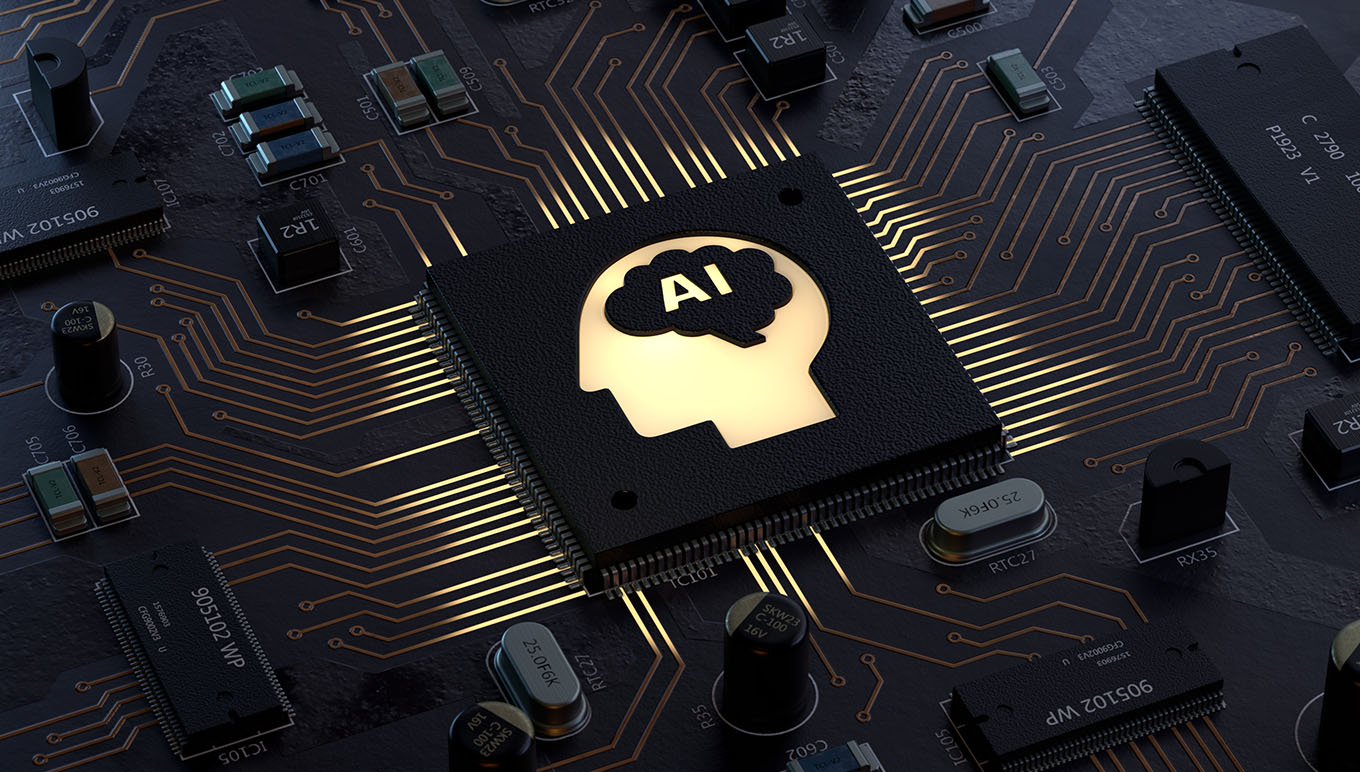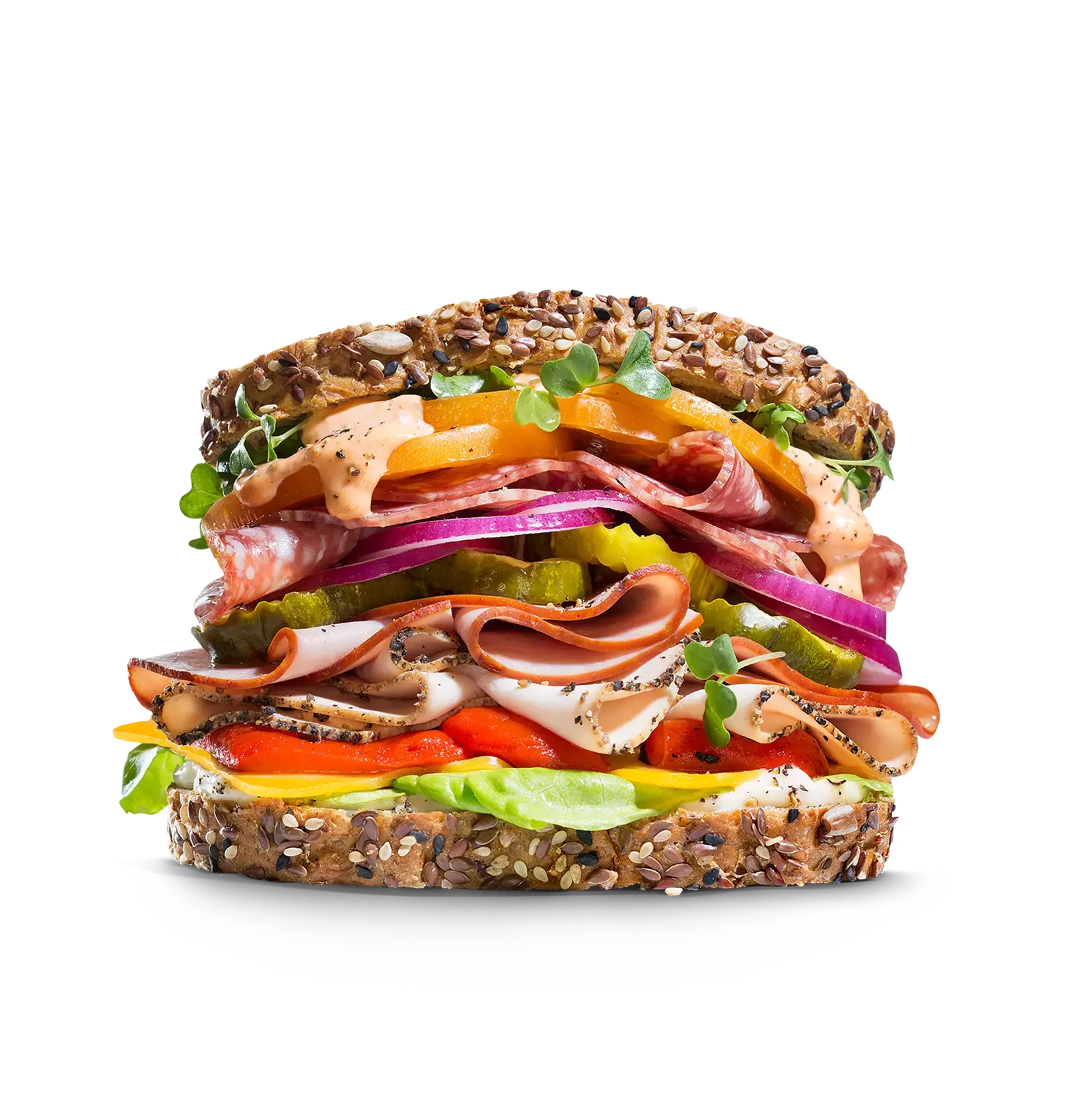Four Transformative Uses for Artificial Intelligence (AI) in Food Manufacturing
Four Transformative Uses for Artificial Intelligence (AI) in Food Manufacturing
Four Transformative Uses for Artificial Intelligence (AI) in Food Manufacturing
Nov 3, 2023
 Aptean Staff Writer
Aptean Staff Writer 
What does the phrase “artificial intelligence” (AI) mean to you? If your mind first goes to science fiction films of years past, chat bots or AI-generated images on social media, it’s time to learn what this emerging field of technology can do for food businesses like yours.
We’re talking about smart tools that learn how your business operates, streamline your processes, cut costs, reduce human error and inform smarter decisions.
Consider that one of the most iconic food manufacturers in the world—The Hershey Company—has already fully embraced AI technology. It’s allowed the business to increase its bottom line, react in real time to inconsistencies in production and improve access to data across the company.
If those benefits sound like they could be useful for your business, too, then dive in with us as we examine just what AI is and how it can serve to optimize efficiency, agility and accuracy in all of your food manufacturing processes.
What Is Artificial Intelligence?
AI is truly a groundbreaking development. That’s because AI can learn, and then make smart, informed decisions—often involving quick, complex calculations and data analysis—based on the information it’s gathered and interpreted.
It does all this much faster than a human could, too. By analyzing your data, AI can improve your functions and quickly execute tasks with more precision and fewer errors.
Microsoft puts it this way: “AI-infused software applications and cloud services drive innovative customer experiences, augment human capabilities and transform how we live, work and play.”
Advantages of AI in Food Manufacturing Businesses
How can AI serve a food manufacturing business? Think about your processes—producing goods based on recipes, fulfilling customer orders, preparing shipments—and what it would mean to have another sharp “mind” that can analyze all of the relevant information at once and carry out measures to improve your outcomes.
AI is intelligent enough that it can detect inconsistencies in your ingredients, alert you to these discrepancies and head off potential issues long before they become a problem. And that’s just one simple example—AI also acts as a form of automation, constantly monitoring for problems and rapidly implementing necessary changes with more complete information than any single person could have.
Let’s look at some other applications of this game-changing technology.
1. Imaging
Microsoft AI boasts two different kinds of “vision”—computer vision and custom vision. Each can help you achieve better, more profitable production.
Computer vision allows the system to identify the content of an image by analyzing it against a massive database of other images. It won’t have perfect accuracy, but as users provide the system with feedback, it can learn, adapt and improve its abilities—or increase its “confidence level”—over time.
Custom vision allows users to teach the AI to recognize and interpret completely new images. A great example would be the food labels used in your facilities—once the system can reliably identify them and interpret the information they contain, it can flag instances of mislabeling and other inconsistencies in your processes.
An important nuance of imaging that sets it apart from simple visual data collection is that AI is able to intelligently analyze what it “sees” and then immediately act to prevent problems and streamline operations. And that’s the sort of agility that today’s competitive food manufacturing marketplace demands.
2. Forecasting
As important as it is, forecasting is still a difficult and complex task for food businesses to carry out with accuracy. The fact of the matter is that humans can only evaluate so much data at once—AI, on the other hand, can get a truly holistic picture of the situation.
That takes away the guesswork and results in projections your business can trust. Also, AI forecasting is completely customizable, so you can set your parameters (how far into the future the forecast will run, what historical data will be used for reference, an “expiration date” for when the forecast will be outdated) and rely on the technology to evaluate your metrics and provide a realistic roadmap for the future.
3. Insights
When you’re dealing with huge volumes of data, it can be difficult to connect the dots and spot connections and correlations. But AI? It’s not limited in the quantity of information it can analyze.
This means your system can identify financial bottlenecks and make smart predictions based on past results. Here are just a few examples:
Predictors on late payments are extremely useful for keeping tabs on your customer transactions and preventing financial issues. AI can easily flag clients who are more likely to miss payments, and that helps your business avoid the nightmare of delinquencies that stretch on for months and impact your bottom line.
Predictors on purchasing help you keep tabs on your material vendors in much the same way as predictors on late payments do your customers. If a particular supplier tends to deliver late or provides low-quality ingredients, AI will bring it to your attention right away, allowing you to change your purchasing strategy for the future.
Predictors on repacking in warehouses allow you to be more flexible with your orders and shipments, reacting to changes before they even occur. That’s because the AI can flag orders that are more likely to change, which would let you shift them to a later wave and react to any last-minute requests from customers.
4. Language Learning
AI isn’t good with just images and numbers—it can also master the language of your business. It operates intuitively, much like a person, anticipating what direction interactions will head and what the next necessary steps will be given the scenario.
By identifying key words and phrases like “send an order” or “send an invoice,” AI can analyze customer communications and set in motion fulfilling the request. And since it’s integrated in all of your processes, that means the right data gets carried over to the right systems, speeding up the process and relieving the burden from your employees.
Take the Future Into Your Hands With Aptean’s AI-Powered Food ERP
Implementing AI in food manufacturing has the capability to deliver meaningful, data-driven information that informs your business decisions and boosts your bottom line, meaning the sky is truly the limit going forward.
If your business has made the smart decision to invest in AI to drive productivity and accelerate your digital transformation, then you're probably wondering what your next step is. While AI has implications and uses in almost every aspect of your food operation, a great place to start is implementing an AI-powered food-specific enterprise resource planning (ERP) solution.
Here at Aptean, we're committed to solving the challenges you face every day with intelligent and innovative food and beverage software. We're never satisfied with "good enough". That's why we're not just integrating AI, we're revolutionizing industry standards by embedding cutting-edge AI tools in our industry-specific solutions. When it comes to our specialized food ERP, built on the Microsoft Dynamics 365 platform, that means you can leverage AI capabilities that improve demand forecasting, boost data quality, enhance reporting and empower data driven decision-making like never before. Whether that's with moving averages, exponential smoothing, trend analysis or advanced time series forecasting models, we're helping you put efficiency and productivity at the core of everything you do.
To accelerate your digital transformation and drive future business growth with innovative, cloud-based food manufacturing solutions, contact our food and beverage industry experts today or schedule a demo.
Get in Touch Today to Speak With an Expert in Your Industry
To grow your business, you need a food ERP built specifically for your industry challenges. We're ready to help—reach out today and we'll help you find the right solution.



